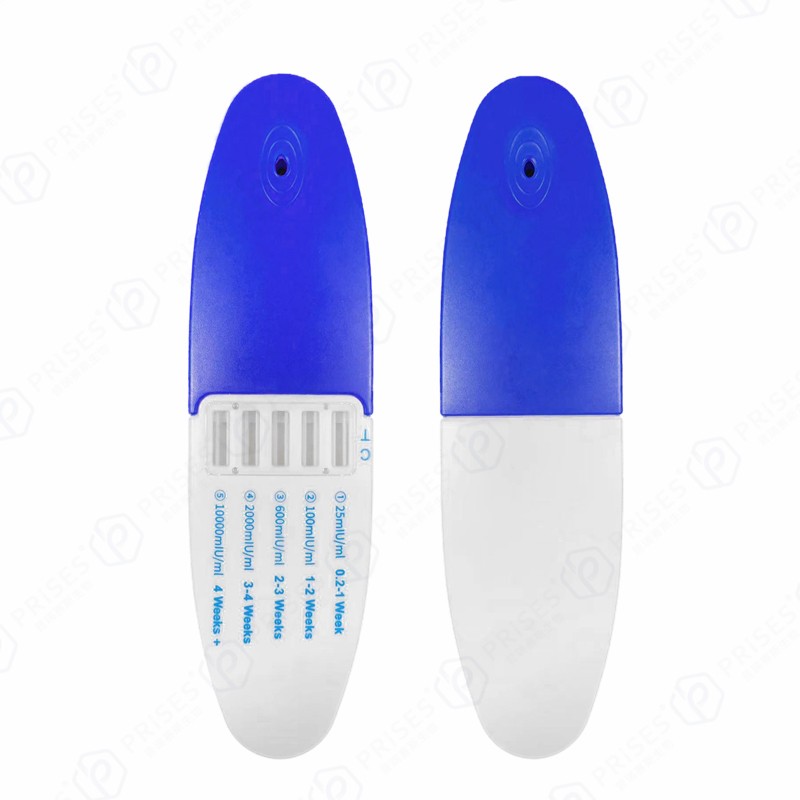Aug . 04, 2024 01:41 Back to list
Supplier Options for At-Home Hepatitis B Testing Kits and Resources for Consumers
The Growing Demand for Hepatitis B Home Test Suppliers
Hepatitis B is a significant global health concern, affecting approximately 296 million people worldwide as of 2019, according to the World Health Organization (WHO). This viral infection can lead to chronic liver disease, cirrhosis, and even liver cancer. With the rise in awareness of hepatitis B and its potential consequences, there has been a marked increase in the demand for home testing kits. As a result, suppliers of hepatitis B home test kits have been gaining prominence in the healthcare market.
Understanding Hepatitis B and Its Risks
Hepatitis B is caused by the hepatitis B virus (HBV) and is primarily transmitted through contact with infectious body fluids. This includes sexual relations with an infected person, sharing needles, and from mother to child during childbirth. Many individuals remain asymptomatic during the early stages of infection, which complicates identification and increases the chance of transmission. The importance of routine screening can therefore not be overstated, particularly in high-risk populations.
Home testing for hepatitis B offers a convenient and private way for individuals to check their infection status. These kits typically detect the HBV surface antigen (HBsAg) in blood, indicating an active infection, or the surface antibody (anti-HBs), indicating recovery or immunity. The availability of these tests can empower individuals to take charge of their health while reducing the stigma associated with visiting a clinic for testing.
The Role of Home Test Suppliers
The surge in home testing kits has given rise to various suppliers that specialize in hepatitis B testing. These suppliers provide a critical service, ensuring that tests are accessible, reliable, and easy to use. Most home test kits come with clear instructions and necessary materials like lancets (for blood collection) and test strips, allowing users to perform tests comfortably in their homes.
The role of suppliers isn't limited to just providing the kits; they also play a part in educating consumers about the importance of regular testing and understanding their results. Many suppliers offer online resources, customer support, and post-test counseling, creating a comprehensive approach to hepatitis B awareness and management.
hepatitis b home test suppliers

Regulatory Compliance and Quality Assurance
As with any medical testing product, ensuring the quality and accuracy of home testing kits is paramount. Reputable suppliers comply with stringent regulations set by health authorities, such as the FDA in the United States and CE marking in Europe. Compliance ensures that the tests are validated for safety and effectiveness, providing consumers with the confidence they need when using these products.
Additionally, many suppliers are now focusing on innovation, developing tests that provide results in a matter of minutes, and integrating mobile technology for easier data management. This kind of advancement not only makes the process user-friendly but also encourages more individuals to get tested regularly.
The Future of Hepatitis B Home Testing
The future of hepatitis B home testing looks promising, with increasing awareness of the disease and advances in testing technology. Suppliers are likely to expand their offerings, perhaps incorporating other viral hepatitis tests, such as hepatitis C, and combining them into a single testing platform.
Furthermore, as global health initiatives continue to emphasize the importance of early detection and treatment of hepatitis infections, the role of home test suppliers will expand. By improving accessibility and reducing the barriers to testing, these suppliers contribute significantly to the global fight against hepatitis B.
In conclusion, the emergence of hepatitis B home test suppliers marks an essential development in public health. By providing accessible, reliable, and user-friendly testing options, these suppliers not only facilitate individual health management but also play a critical role in reducing the prevalence of hepatitis B worldwide. As technology and awareness continue to advance, the impact of these suppliers in the healthcare landscape is expected to grow even further.
-
Malaria Pf Ag Rapid Test Kit - Quick & Accurate Detection
NewsAug.11,2025
-
Accurate Cardiac Marker CK-MB Rapid Test for Quick Results
NewsAug.10,2025
-
Premium Empty ABS Plastic Cassette for Test Strips
NewsAug.09,2025
-
Sterile Urine Cup: Accurate Specimen Collection for Labs & Home
NewsAug.08,2025
-
Malaria Pf/Pan Ag Rapid Test Kit for Fast, Accurate Diagnosis
NewsAug.07,2025
-
Rapid Canine Corona Test: Fast & Accurate Results
NewsAug.06,2025

